The acquisition of MRH by MFG earlier this year could be good news for everyone in the fuel retailing sector, according to Adam Wadlow, partner at fuel and automotive property advisers Barber Wadlow, which has just published its latest Forecourt Property Market Update. "It shows that the independent dealer sector is being corporatised and each operator is becoming quite a sophisticated retail business and a long way from the old days of retailers pulling a piece of paper out of their back pocket to show trading figures," he says.
"Now they’ve got analysts, spreadsheets and everything else that enables them to keep all their figures at their fingertips. They are well-oiled machines because they tend to be owned by some fairly major investors who are looking to squeeze every pip out of the business. By having a major operator like MFG with potentially 930 sites it’s only going to be a beacon for how to do business in the sector, and what investors can do in the sector, so it only raises the profile of the market as a whole."
MFG and MRH accounted for about 60% of the buying transactions in the past year, but Wadlow doesn’t think their merger will lead to a fall in property prices. His company dealt with six different corporate transactions last year, ie six dealer groups were buying something, but that’s unlikely to happen this year there will be a slowdown in the number of transactions taking place: "That’s not because we haven’t got buyers for the groups, it’s because we haven’t got the groups to sell," he explains. "It’s not a lack of demand, but a lack of supply.
"If you run through the clients that we sold last year the likes of Synergie Retail, Roadside Retail, Carsley Group and Manor Service Stations they’re all people who wanted to retire or do a family restructure. They’ve done it and left the market they’ve retired. But there aren’t many of those situations left at the moment." Altogether 10 forecourt retail groups sold out to the leading independent operators accounting for 76 sites.
Wadlow also doesn’t see forecourt property prices changing an awful lot because of the supply/demand balance, and the fact that there aren’t lots of people desperate to get out of the market.
"The people sitting there with good businesses they’re not going to just give them away," he explains. "If they can’t get the money they want for a business, they’ll carry on running it. If people want to get into a market and buy a business, they’ve got to pay that market price, which isn’t dipping to any great extent because there’s not a lot of opportunity to go elsewhere.
"But what I don’t see is the massive onward growth in values to such a great extent going forwards, that we’ve seen over the past three years I think prices will plateau."
Wadlow says there had had to be a price adjustment with prices going up because oil company divestment stopped. Oil companies had no more sites to sell the tap was switched off. People had to get real and pay proper money.
He certainly doesn’t see values dropping off a cliff either because there’s no real reason for it: "The lack of supply will keep on underpinning value, and the fact that trading conditions remain robust.
"There are still many people who want to get into the fuel retailing business, stay in the business and add value to it," says Wadlow. "There seems to be a new ’trick’ out each week for how you can squeeze value out of x, y and z such as branded food-to-go and drive-thru coffee and they’re very scalable."
The Barber Wadlow Forecourt Property Index has now more than doubled over the past 15 years and has achieved a 73% increase since the bottom of the market in 2011. A site worth £750,000 then is now potentially worth £1.3m.
The company estimates that the number of sites bought and sold in 2017 was around 170, a 15% drop on the previous 12 months and likely to be smaller again in 2018 due to the lack of supply. The major independent retailers continue to be the most active buyers. Small/medium-sized retailers are continuing to buy single sites which tend to be of lesser interest to the big ’Indies’.
"Single sites therefore tend to attract a different market, although demand will still be healthy for good quality opportunities," confirms Wadlow.
He also believes the government’s intention to ban the sale of hydrocarbon-powered cars by 2040 is not expected to have a discernible impact on values, given that modern forecourts have diverse businesses not solely reliant upon fuel sales and forecourts are also likely to be an integral part of the national electric charger and/or hydrogen networks.
New technology
His advice to retailers is to embrace the new technology but within reason. "The barriers are so high at the moment. Embrace new technology, but in the knowledge that electric cars are currently but a pimple in the whole marketplace, and they’ve got to grow quicker in terms of sales, than they currently are today, to hit anything like the government’s targets. Even at the bottom end of the government’s target range, there will still be more non-electric cars on the road in 2030 than there are today, assuming car sales increase as they have done in the past 20 years.
"Building a site costs £1.5m, so the additional cost of installing charging points is not phenomenal.
"Where the massive cost will come is if we start needing to charge these cars in five or 10 minutes, and we need to have 3.1 megawatts per site. No one’s got the answer to that that’s not petrol retailers, that’s national grid!"
But he advises caution in terms of doing lease deals for electric charging installations. "You’ve got to be very careful. You need to keep flexibility in the leases that you put in place as you don’t know what the future will be.
"The future might be even more electric and two charging points at one side of the forecourt might be completely inappropriate. Maybe the charging points should be where the pumps are today; conversely you might need to make way for hydrogen pumps.
"We simply don’t know what the future will be, but I’m convinced alternative fuels can only be an opportunity for our sector."























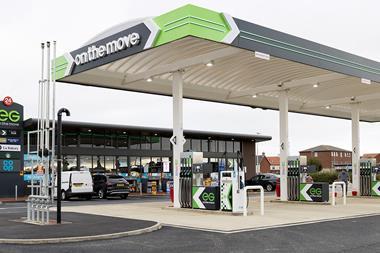
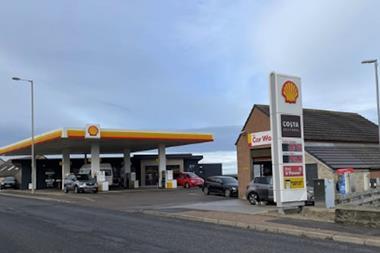
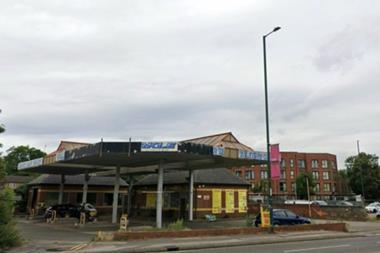




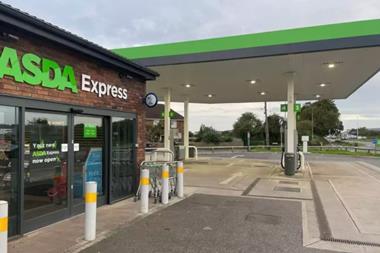
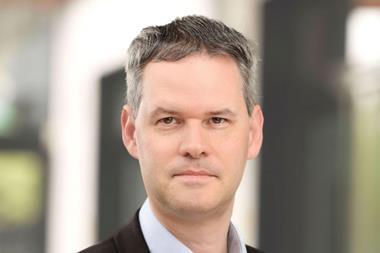

No comments yet